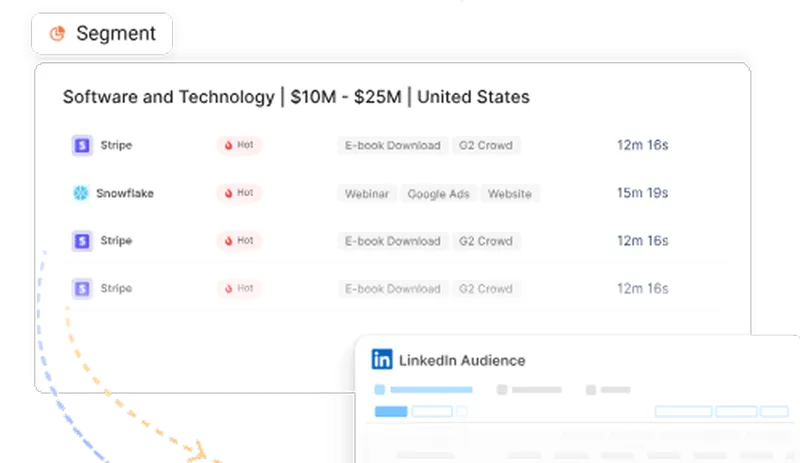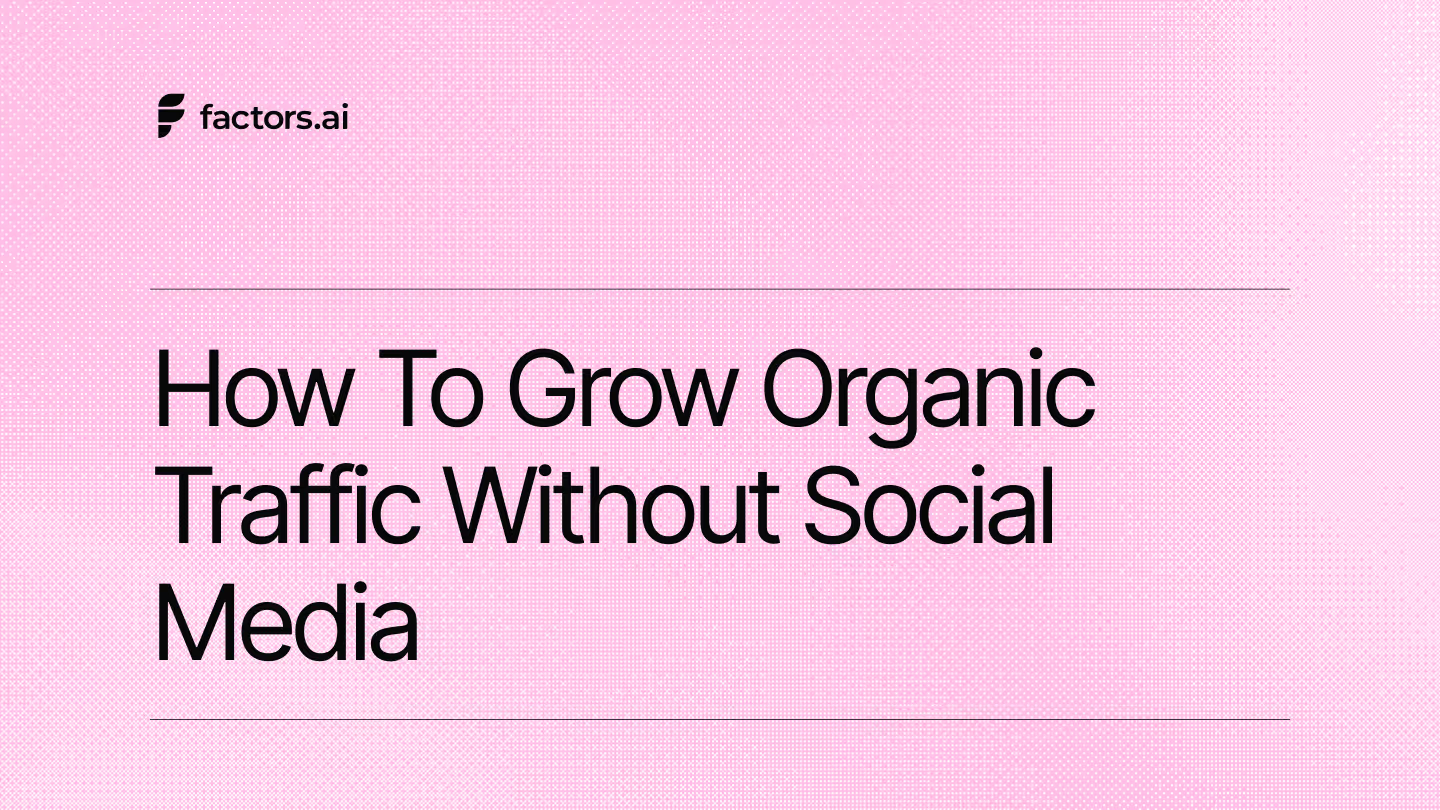6 B2B marketing mistakes to avoid
Maximize your B2B marketing efforts by avoiding these common mistakes. Read Factors.ai's latest blog post for valuable insights and tips.
As a B2B marketing team, there are a few common mistakes that should be avoided. Not focusing on branding enough, or ignoring the potential solid audience research holds for your brand can all negatively affect your brand's growth in the long run.
The growth of online marketing strategies, various tools, and software, and even a shift in audience preferences have all led to a change in B2B business's marketing journeys. However, there are timeless mistakes that every B2B marketer should know about while crafting a marketing strategy.
In this blog, we'll cover the top 6 mistakes that a majority of B2B marketers make - mistakes you should try not to make throughout your marketing journey.
#1 A Lack of Focus on Branding
You may think, "What's branding got anything to do with B2B? Isn't branding only needed when interacting with a non-business audience like B2C brands?" This notion could not have been farther from the truth. Most B2B brands do not focus on branding as much as they should, since they do not see the contribution it provides to your brand and your customers in the long run. Put simply - branding is important. Creating a strong connection with your present and potential customers with a solid brand identity, voice, and emotion-centric branding efforts is the best way you as marketing can avoid making this first mistake. Tips:
- Creating a brand from scratch takes the same (if not more) amount of effort as creating a company.
- Emotion is key. The more you relate to your customers' feelings, emotions, and needs, the more customer-centric your brand will be able to be.
- Consistency is key. Creating a brand is not an overnight process, so putting in effort regularly is the best thing you can do for your B2B brand.
#2 Being unaware of your true target audience
Be it a business or an individual on social media, knowing what your target audience is essential for B2B success. B2B brands often miss out on defining their target audience early on in their marketing efforts, simply because it does not seem important at that stage. However, businesses too, comprise your target audience and need personalized, impactful marketing efforts that might motivate them to opt for your brand's products/services. Understanding your target audience is highly useful for your marketing, advertising, sales, product development, and even service departments, as the better you know who and what your audience comprises, the better you will be able to cater to their needs.
Tip: Buyer personas are a must. Take some time out to divide your customers into personas that you can use to create better targeted and more efficient marketing campaigns. After all, better B2B marketing efforts potentially lead to better brand and revenue growth!
#3 Using unnecessary jargon
Often, B2B brands (and marketers) use unnecessary jargon to sound more "authoritative and professional" in front of their target audience. However, this is the biggest mistake you could make as a B2B marketer. Content marketing efforts such as a company blog, weekly newsletters, free industry resources, and whitepapers are a goldmine for B2B brands. No matter how useful and valuable the content inside each of these may be, using jargon and complicated terms to interact with your audience will be nothing but negative for your brand growth.
Keeping it simple, not bland, is a mantra every B2B marketer should know.
Here are a couple of ways to stop making this mistake.
- Write like your audience. Conduct thorough research on the types of content your audience prefers, and create content accordingly. It always helps to keep in mind their preferred level of technicality, subject understanding, and voice in mind!
- Ensure you ask for lots of feedback from your audience after they view/interact with the content you've put out. Asking for feedback before publishing the content is a great way to ensure you don't publish content that is not audience-friendly in the long run.
#4 Analytics, analytics, analytics
(or a lack thereof)
As any B2B marketing will tell you, analytics tools are THE way to track and measure brand performance over time. Be it website conversions, newsletter sign-ups, or even the number of visitors that signed up for a demo call, analytics are essential for a rocking marketing strategy. B2B brands often ignore this aspect of marketing, which is perhaps the most important one - tracking results. Understanding which channels are bringing in better, more promising leads, and which channels need optimizing are useful insights to have while allocating budgets and brainstorming strategies for each of these channels.
Opting for the right analytics software based on your brand needs is equally important, and the only way you can do this is by conducting lots of research on the various options available. Social media platforms too, provide separate analytics dashboards for business accounts, and these are a great place to understand audience behavior.
#5 A Poor Definition of your Brand’s USP
Your brand's USP, or Unique Selling Proposition, is what sets it apart from your competitors. Not understanding your USP leads to poor use of marketing potential, and a potential dip in the amount of traffic your sales funnel sees. What's more, marketing your USP well creates a lasting impression on your audience, which is nothing but beneficial for your B2B brand. Understand your audience's needs, tie them in with your USP, and market it in a way that makes it about what your brand can do for them.
#6 Ignoring UI and Design
Here's a TL;DR - If your User Interface sucks, you're not doing it right. Apart from your service or product, your overall user experience is what helps clinch the deal. Be it a mobile application or your website, focusing on a smooth, user-friendly, and responsive design is key for a glowing UX.
Ensure you test out all of your website pages, applications, and landing pages on multiple devices and network speeds. Optimize your images and videos so that they load quickly on slower networks, and ensure that your website is accessible (and readable) on both desktop and mobile devices.
See how Factors can 2x your ROI
Boost your LinkedIn ROI in no time using data-driven insights


See Factors in action.
Schedule a personalized demo or sign up to get started for free
LinkedIn Marketing Partner
GDPR & SOC2 Type II
.svg)










